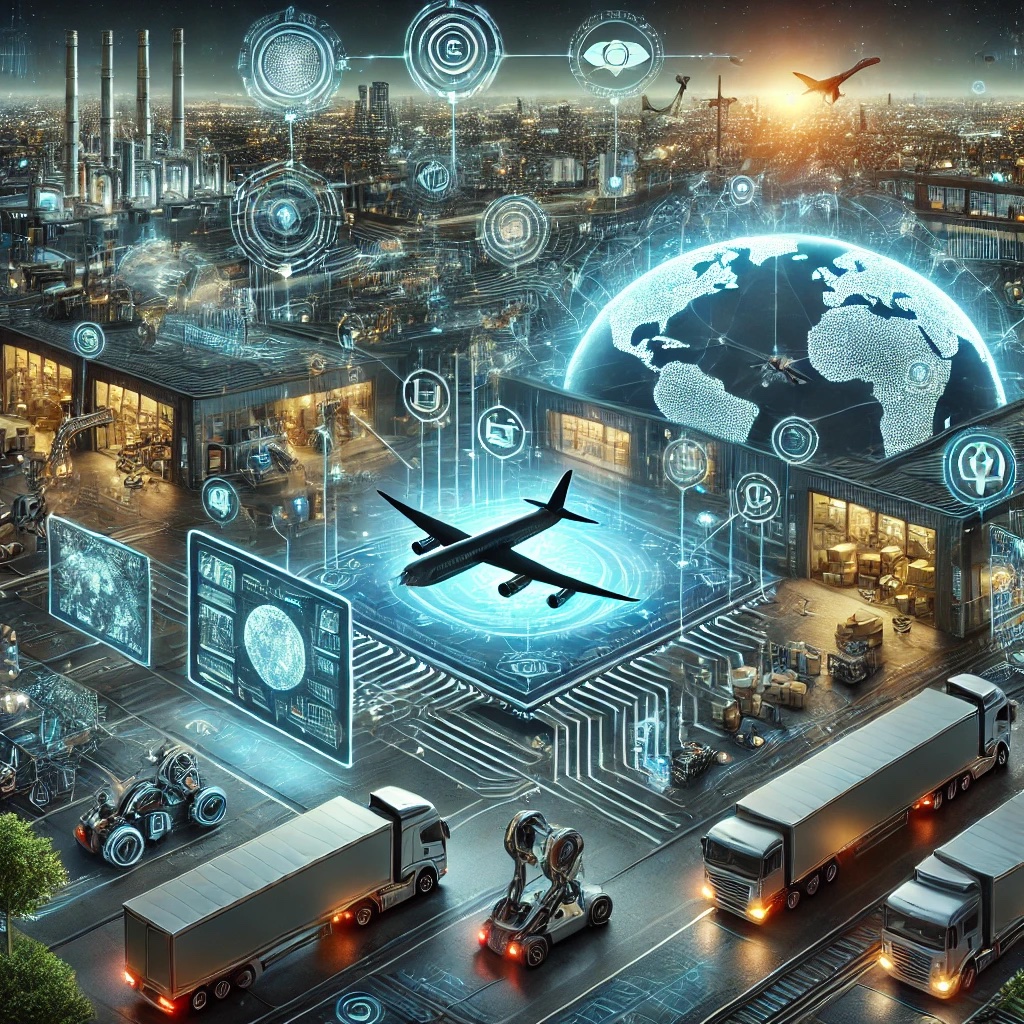AI revolutionizing supply chains:
Efficiency, transparency, sustainability, and innovation
The supply chain industry refers to the network and processes involved in the production, distribution, and delivery of goods and services. It encompasses all activities required to move a product from its raw material stage to the final consumer. This includes sourcing materials, manufacturing, transportation, warehousing, inventory management, and logistics.
Sectors within the Supply Chain Industry:
- Food and Beverage: Managing perishable goods and ensuring quality.
- Automotive: Complex logistics for parts and finished vehicles.
- Retail and E-commerce: Managing fast-moving consumer goods and online sales.
- Healthcare and Pharmaceuticals: Transporting and storing sensitive medical products.
- Technology and Electronics: Handling high-value and sensitive goods.
Importance of the Supply Chain Industry:
- Economic Impact: It supports global trade and contributes significantly to GDP.
- Customer Satisfaction: Efficient supply chains ensure timely delivery and product availability.
- Cost Management: Optimised supply chains reduce waste and operational costs.
- Sustainability: Innovations in the supply chain can lead to greener, more eco-friendly practices.
This industry is vast and continuously evolving, often influenced by globalization, technological advancements, and changing consumer demands. Artificial Intelligence (AI) is transforming the supply chain industry by making processes more efficient, accurate, and responsive. Here’s how AI supports the supply chain:
Demand Forecasting and Planning
How it helps: AI analyses historical sales data, market trends, and external factors like weather or economic conditions to predict demand.
Benefits includes reduces overstocking and stock-outs, improves inventory management, and aligns production schedules with actual demand.
Predictive Maintenance
How it helps: AI-powered sensors monitor equipment and identify signs of wear or failure.
Benefits includes reduces unexpected downtime, extends the life of machinery, and lowers maintenance costs.
Warehouse Automation
How it helps: AI integrates with robotics and IoT to optimise warehouse operations like picking, packing, and sorting.
Benefits includes: Increases operational speed and accuracy, reduces human errors, and enhances safety in the workplace.
Route Optimisation and Transportation Management
How it helps: AI analyses real-time traffic, weather conditions, and delivery schedules to optimise routes.
Benefits includes: Reduces fuel consumption and transportation costs, ensures faster deliveries, and enhances customer satisfaction.
Supplier Management
How it helps: AI evaluates supplier performance by analysing data on lead times, quality, and costs.
Benefits includes: Improves supplier selection and relationship management, reduces risks in the supply chain, and ensures better compliance with standards.
Inventory Optimisation
How it helps: AI-driven systems analyse demand patterns and supply constraints to recommend optimal inventory levels.
Benefits includes: Minimises excess inventory, enhances working capital utilisation, and reduces storage costs.
Fraud Detection and Risk MitigationHow it helps: AI identifies anomalies and potential risks in transactions and operations.
Benefits includes: Prevents financial losses, strengthens compliance and security, and improves trust in the supply chain.
Real-Time Tracking and VisibilityHow it helps: AI-powered systems provide real-time insights into the movement and condition of goods using IoT and sensors.
Benefits includes: Enhances transparency, reduces delays and losses, and builds customer trust.
Sustainability and Waste Reduction
How it helps: AI optimises resource usage, reduces waste, and tracks carbon footprints.
Benefits includes: Supports eco-friendly practices, aligns with corporate social responsibility (CSR) goals, and meets regulatory requirements.
Chatbots and Customer Service
How it helps: AI-driven chatbots handle customer inquiries and provide real-time updates on order status.
Benefits includes: Improves customer engagement, reduces response times, and frees up human agents for complex tasks.
AI is a game-changer for the supply chain industry, driving efficiency, agility, and cost-effectiveness. Businesses that adopt AI gain a competitive edge in this dynamic market.
